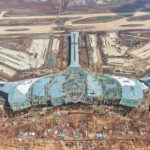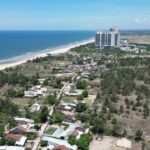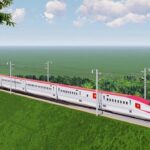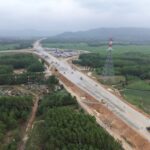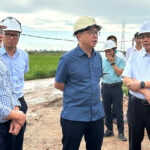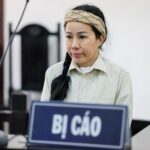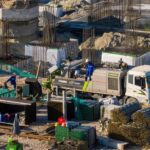“We hope the project will be implemented soon,” residents expressed.
The apartment blocks at 135 Nguyen Van Cu, built over 30 years ago, have severely deteriorated. Walls are leaking, drainage systems frequently clog, and many families have to collect rainwater indoors. Mr. Vu Dinh Khang, Head of the Building Management Board of Block 3, shared, “My house was renovated 10 years ago, but the quality continues to decline. Being on the second floor, water seepage isn’t as noticeable as in higher floors, but we constantly deal with clogged drains that can’t be fixed. Residents on the 4th and 5th floors often have to use buckets to catch rainwater during heavy storms, sometimes emptying them multiple times a day.”
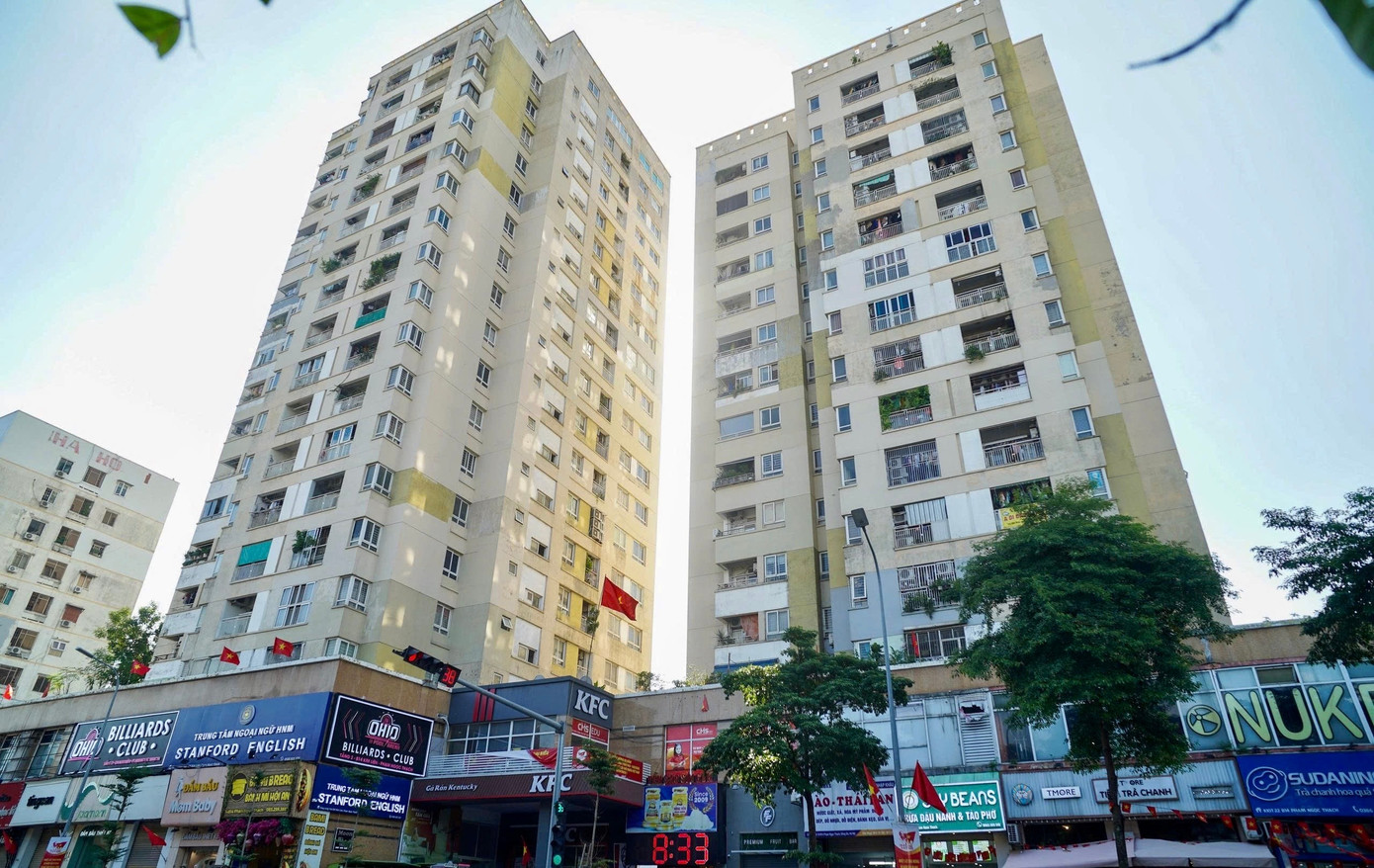
B14 Kim Lien apartment (along with B4 Kim Lien) after reconstruction by Song Hong Construction JSC. Photo: Duc Nguyen
Like Mr. Khang, many other residents have spent significant amounts on maintenance and repairs. “My last major renovation cost nearly 200 million VND, not to mention smaller expenses. We’re eager to renovate because living in such a dilapidated space is extremely inconvenient,” he added.
Mr. Bui Van Son, a 5th-floor resident, mentioned his family also spent nearly 200 million VND to fix the ceiling and kitchen, but it was only a temporary solution. “On sunny days, it’s manageable, but rainy days are incredibly inconvenient. We hope the project will start soon so we can have a new, stable home.”
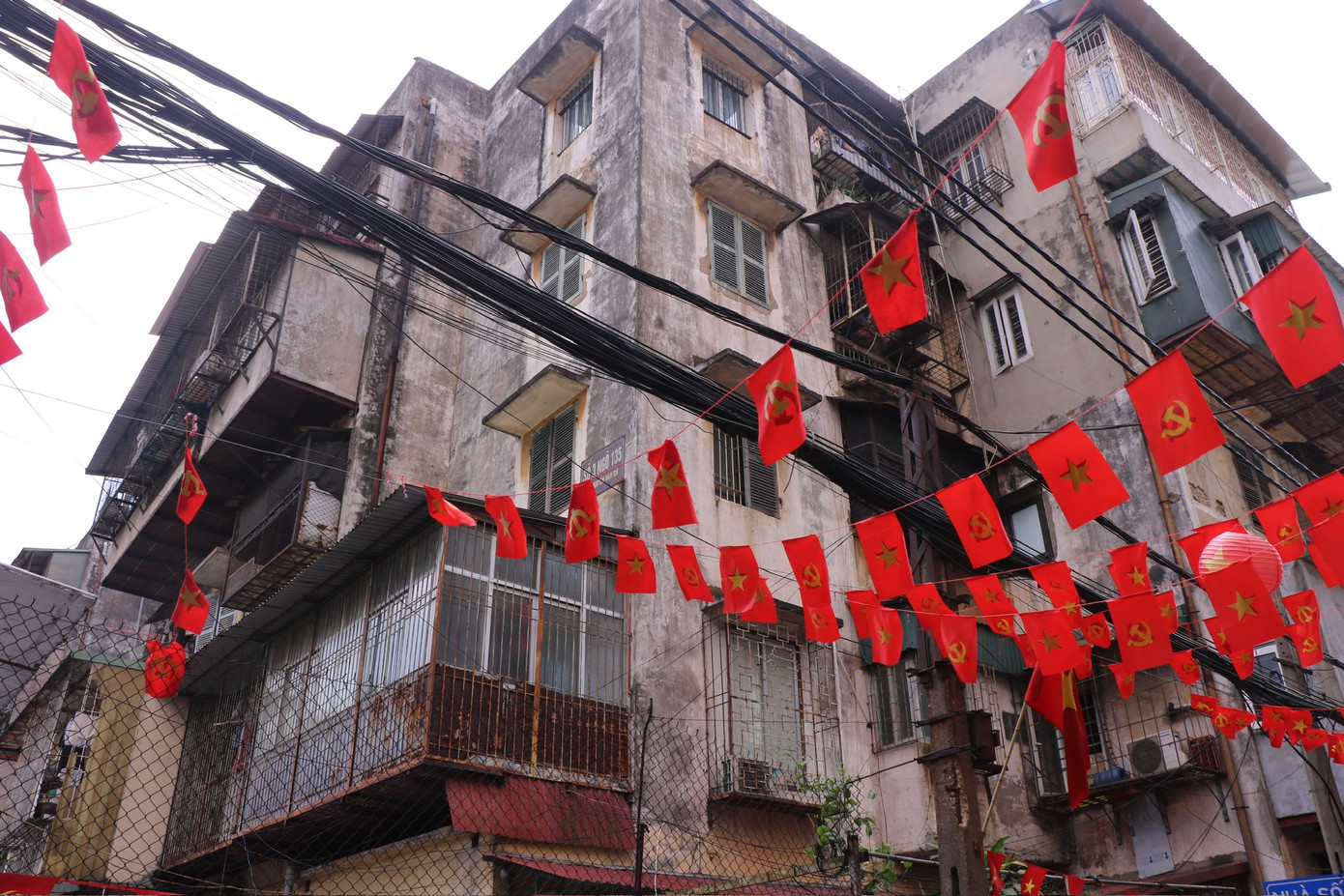
Many residents have extended their living spaces at 135 Nguyen Van Cu, Hanoi. Photo: Lam Thuy Duong
Previously, Song Hong Company surveyed, held meetings, listened to residents’ opinions, and proposed compensation plans, including rental support for two years during construction. Residents were promised resettlement from the 6th floor upward, with lower floors designated for commercial use. Those not wishing to return were offered agreed-upon amounts to purchase homes elsewhere. However, due to disagreements over compensation ratios and the impact of COVID-19, the project was halted.
The situation has since improved. Mr. Khang noted, “Currently, out of 40 households, most have agreed to the investor’s compensation ratio, with only about 3 households seeking higher ratios. If renovated, most of us hope to resettle on-site with a compensation ratio of at least 1.8 times. We also hope construction will proceed promptly to avoid prolonged renting, which adds financial pressure.”
Residents universally desire a new, high-quality home with the option to purchase additional space at reasonable prices to expand their living areas. Even households with storefront advantages have agreed, reflecting a shared willingness to cooperate for the project’s implementation.
Investor’s Commitment and Resolving Challenges
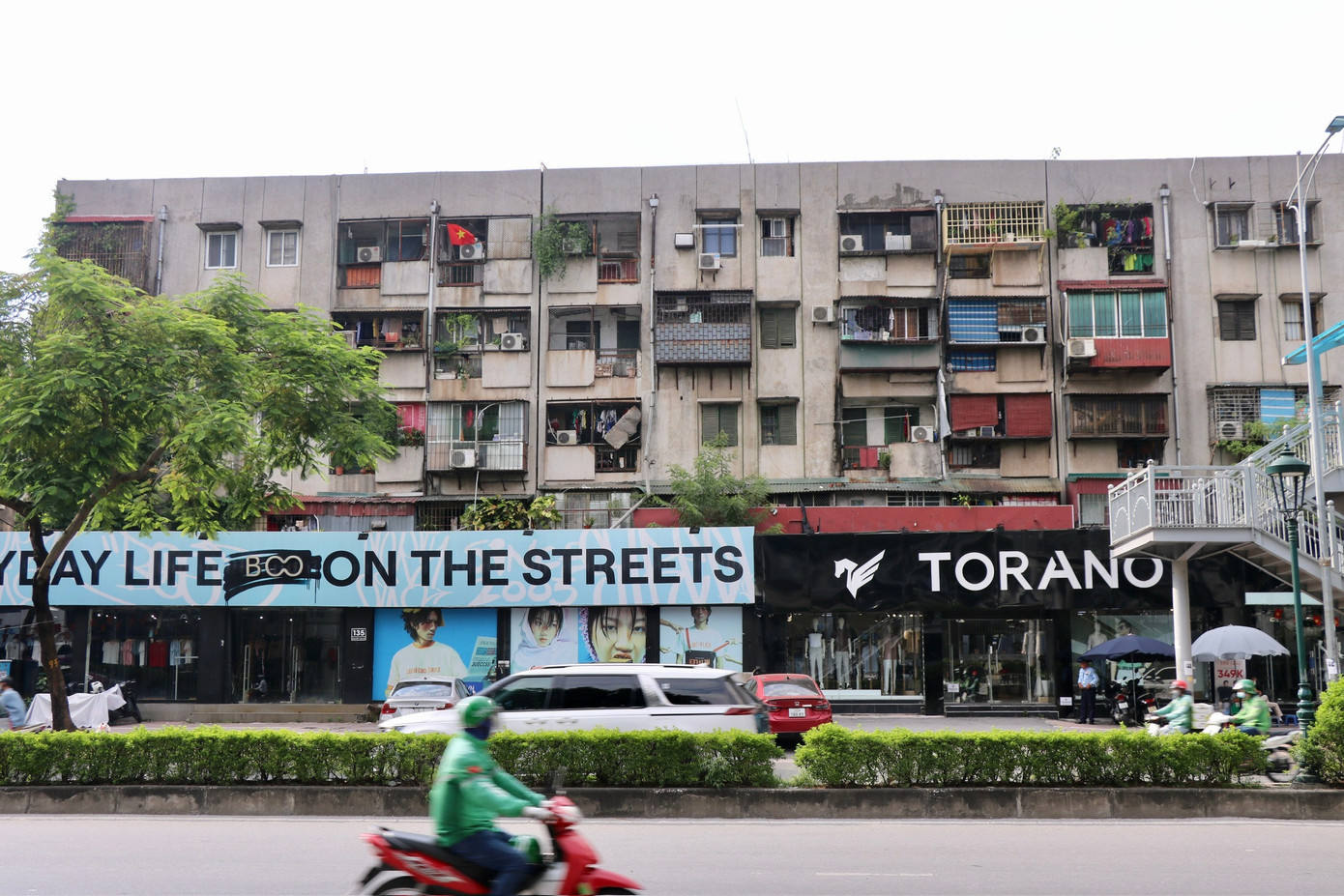
Current state of the deteriorating 135 Nguyen Van Cu apartment complex with many extensions. Photo: Lam Thuy Duong
The 135 Nguyen Van Cu apartment renovation project was assigned to Song Hong Construction JSC in 2009 for planning the Chemical and Agricultural Produce Collective Housing areas. The company views this as a socially significant project, aiming not only to upgrade housing but also to enhance urban aesthetics. However, implementation has faced challenges from both residents and legal regulations.
Land clearance is the key issue. Without uniform compensation ratio guidelines, negotiations between businesses and residents often prolong. Some households demand new apartments 2–3 times larger or as many units as their current residents. Ground-floor residents, citing higher commercial value, make specific demands.
For businesses, meeting demands beyond planning, land use coefficients, and technical infrastructure is impossible. Clearance, resettlement, construction, and tax costs are substantial. If compensation exceeds feasibility, the project loses economic viability. Decree 98/2024/NĐ-CP now caps compensation at 2 times for ground-floor units and 1.5 times for others, but specifics remain unclear, leaving room for negotiation.
Planning regulations also pose challenges. Urban zoning restricts high-rise construction to avoid overburdening technical and social infrastructure. Without adjustments, financial feasibility is questionable. Increasing height limits population density, complicating business viability.
Song Hong has proposed solutions: standardized compensation ratios to streamline negotiations; mandatory relocation for unsafe buildings; state-led detailed 1/500 planning to ensure integrity and investor confidence. They also seek tax incentives, loans, and land funds to balance interests. The company remains committed to the project.
With rapidly deteriorating inner-city apartments in Hanoi, renovating 135 Nguyen Van Cu is urgent. On September 27, 2022, Hanoi’s People’s Committee issued Plan 254/KH-UBND to demolish the Chemical and Agricultural Produce Collective Housing areas in Q3/2023.
Residents are ready, and the investor is determined, awaiting clear legal frameworks and government action. Once obstacles are resolved, the old complex will transform into a modern apartment building, enhancing urban appearance and residents’ quality of life.
Unveiling the $4 Billion Da Nang Resort Project’s Litany of Violations
The Da Nang Inspectorate has uncovered a series of violations in compensation, land clearance, and investment for resettlement areas within the Hoiana Resort project.
Resolving Land Clearance Hurdles for the Quang Ngai – Hoai Nhon Expressway: A Critical Step for Quang Ngai Province
Quảng Ngãi Province has successfully handed over the entire main route of the Quang Ngai – Hoai Nhon Expressway project. However, 14 lingering issues remain unresolved. The Ministry of Construction has mandated that these issues be definitively addressed by October 15 at the latest to ensure the project stays on schedule, as directed by the Government and the Prime Minister.
Accelerating Progress: EVNNPT Speeds Up the 500kV Hai Phong – Thai Binh Power Line Project
On October 8, 2025, Mr. Phạm Lê Phú, General Director of the National Power Transmission Corporation (EVNNPT), led a working delegation to inspect the progress and urge the construction of the 500kV Hải Phòng – Thái Bình power line project.

